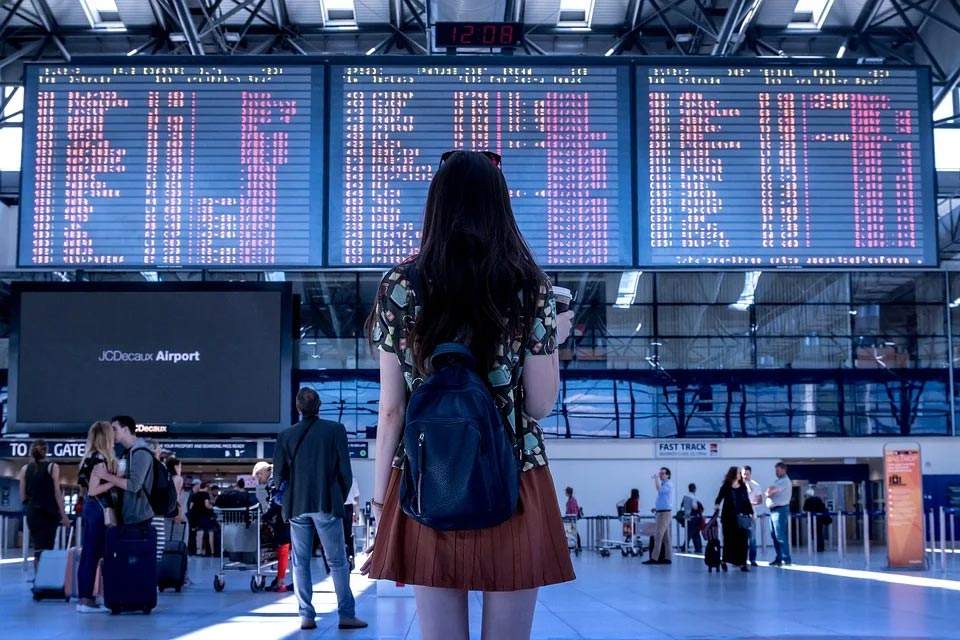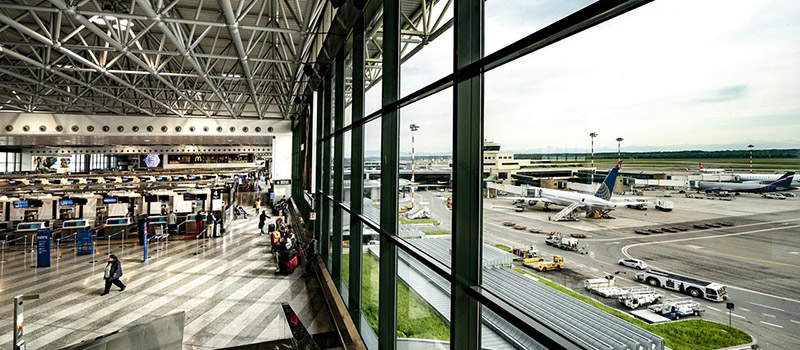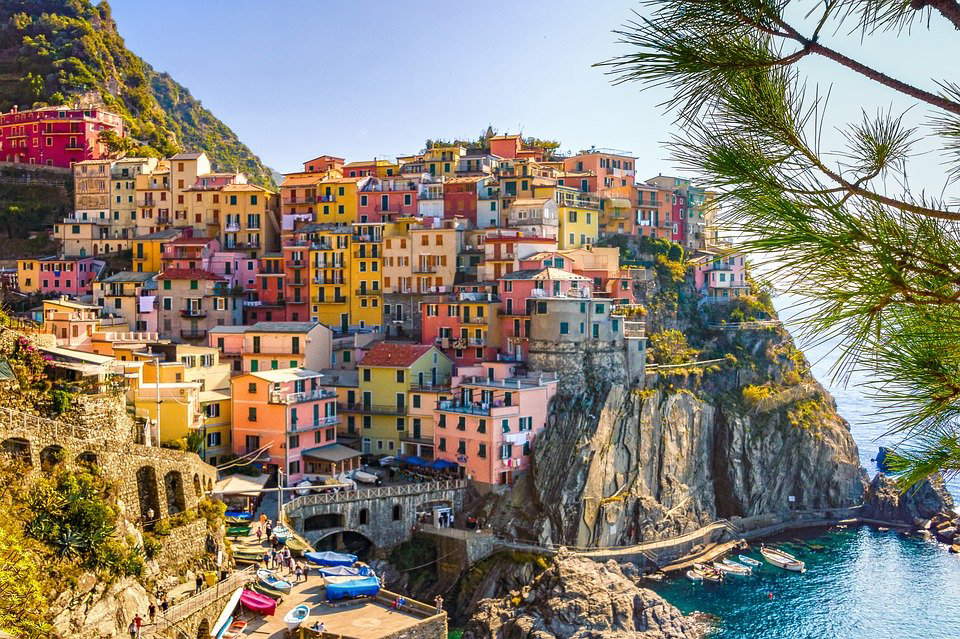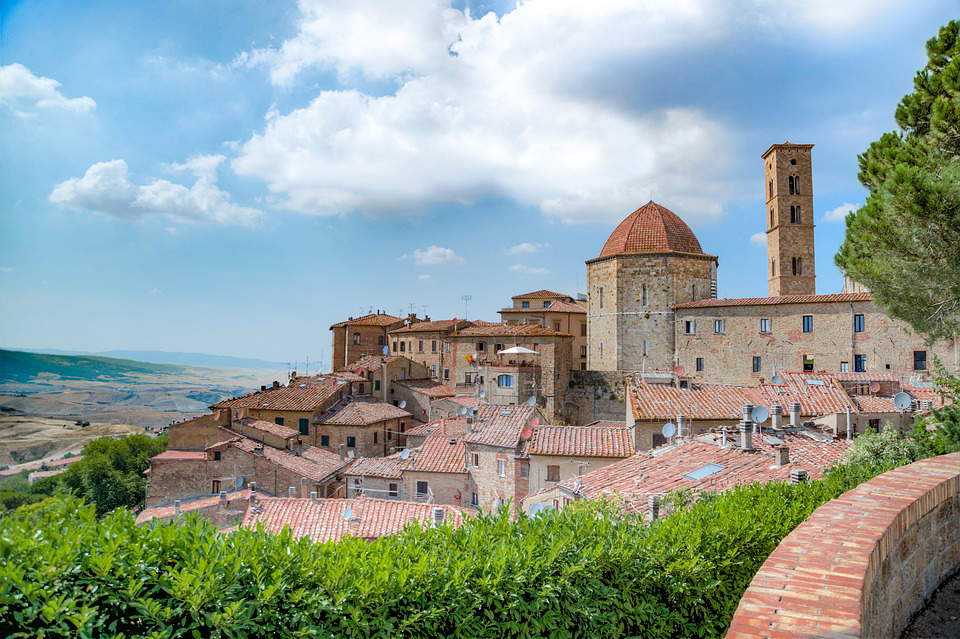Tourism, in Italy, will lose 1.4 billion euros in the week of Easter alone: the damage affects hotels, restaurants, activities and services aimed at tourists. These are the numbers released by the estimates of Cst (Center for Tourism Studies) for Assoturismo Confesercenti: due to restrictions to contain the Covid-19 contagion, facilities, this year, will do without 11.3 million presences, and this after a disastrous start to the year, since winter tourism was practically zeroed out due to plant closures and New Year’s Eve at home, with 4 billion euros burned, again according to Cst estimates. So much so that Assoturismo president Vittorio Messina speaks of a 2021 that “looks more and more like a new 2020.”
A collapsing sector also according to Federturismo, which released additional numbers on March 19 to highlight how much Covid has cost tourism. The tourism operators’ federation, in particular, cites a Nomisma survey indicating that 8 percent of Italian tourism businesses have already disappeared due to restrictive measures to curb the pandemic as well as insufficient support measures, and another 31 percent are at risk of not reopening in 2021. The sector is made up of 386,000 businesses that generate 232 billion in contribution to GDP: according to Federturismo, it is therefore “imperative to open a direct confrontation with the sector’s businesses in order to build a mechanism that is of real impact for the economic sustainability of entire production chains.”
Easter, however, is now gone. Almost all of Italy will in fact find itself in a lockdown not too different from that of 2020, given the abolition of yellow zones until April 30. And for the tourism sector, in addition, there is the hoax of allowed tourist travel abroad. An absurdity, according to almost all operators, that adds insult to injury, when “progressive and safe reopenings” would be needed immediately, Confcommercio President Carlo Sangalli told the Gazzettino today.
 |
“Hotels and the entire Italian hospitality system have been at a standstill for months because of the ban on travel from one region to another,” says Federalberghi president Bernabò Bocca. “We do not understand how it is possible to authorize travel across borders and instead prevent travel in Italy.” In fact, the dpcm of last March 2 left open the possibility for Italian tourists to travel abroad in countries that allow tourism entry. The rules, of course, vary from country to country. There are countries that do not allow unnecessary travel: this is the case, for example, with Belgium, Denmark, and Finland. Germany has expressly banned overnight stays for tourism. Others impose rules that discourage travel: Austria, for example, imposes a ten-day fiduciary self-isolation for anyone arriving from Italy, while France strongly discourages travel (partly because the country is under a lockdown regime similar to Italy’s, so tourists have little to do... ) and for those who cannot opt out they impose a molecular test, while Portugal calls for testing and, for travelers arriving from countries with incidence 500 cases/100,000 population in the 14 days, two-week quarantine. But there are others where getting in is not too complicated. To go to the beaches of Cyprus, one needs to present a negative test done no more than 72 hours before departure, and then repeat the test on arrival by remaining in self-isolation until the result is obtained. In Malta and Spain, on the other hand, it is sufficient to present the test, again no older than 72 hours.
Given the ease of entry into Spain, flights to the country are increasing: in fact, Il Sole 24 Ore reports that 140,000 passengers, including departures and arrivals, are expected to fly into Milan’s Malpensa and Linate airports during the week of Easter, a 41.5 percent increase over the daily average for February traffic. A “mini-boom,” according to the newspaper: consider that from April 3 to 7, a total of 19 flights are scheduled from Malpensa to the Canary Islands (Tenerife, Fuerteventura, Las Palmas) and other Spanish locations such as Madrid and Barcelona, with 131 passengers on average per flight, and with a prevalence of flights by low-cost airlines. The paradox is that, according to the rules of the latest anti-Covid decree, two relatives living in two different red regions cannot meet on domestic soil given the travel bans, but can safely board a flight and meet in Formentera to celebrate Easter together.
It must be said, however, that after fierce controversy erupted precisely because of the paradoxes of the situation, the Minister of Health, Roberto Speranza, signed an ordinance in effect until April 6 that requires people to take a swab on departure, undergo a five-day quarantine upon return to Italy, and take an additional swab after the five days are over. But some operators did not like this solution either, as, in the end, some Italian tour operators are working with our compatriots who plan to spend Easter outside the country’s borders. “The patch is worse than the hole,” Bernabò Bocca stressed. “We absolutely did not want to make war on Italians going abroad, nor did we want to make war on Italian tour operators and travel agencies of which we have the highest regard. Our argument is just this: if the buffer applies to going abroad it must also apply in Italy. Federalberghi has an agreement with more than two thousand diagnostic centers for hotel swabs. If it is allowed to get on a plane with the swab, let it also be allowed in the hotel.” So the hoteliers’ proposal is not to stiffen the rules for those traveling abroad, but to leave open the possibility of traveling to Italy to people who have been vaccinated or with a swab taken no later than 48 hours before travel, or with the result of a serological test showing that they are cured of the disease. However, for organized tourism associations, including Fiavet and Fto-Federazione Turismo Organizzato Confcommercio, the mandatory quarantine and swab is “yet another disfigurement inflicted on organized tourism.” It is really difficult, say the associations, “to understand how a five-day quarantine and an additional swab at the end of the five days can be a necessary and useful measure for people who have already taken a swab that came back negative 48 hours before returning to our country. One cannot help but read this ordinance as a consequence of all the sterile and useless controversies of the last few days.”
It must also be said that the situation, in the countries most popular with travelers, is not exactly rosy, and numerous controversies are also erupting in tourist destinations, starting with Spain: in fact, in Madrid there have been cases of overly partying tourists that have led some political parties to speak of "turismo de borrachera," the tourism of young people who come from abroad to party and get drunk. Not only that, the Meliá hotel chain has even filed a lawsuit against the Spanish government, demanding 116 million euros in compensation for damages suffered in 2020, and this because of restrictions imposed in the country. In Spain, moreover, there is also a ban on travel between one Autonomous Community and another (the Autonomous Communities are homologous to our regions, but have much wider margins of autonomy), and the possibility of foreign tourists arriving is also seen there as a paradox. And although in Spain the government has granted many more openings than ours, the perception of the population is that the rules are still quite strict.
 |
| Malpensa Airport |
Adding to the paradoxes of travel not being allowed domestically but permitted abroad is the issue of refreshments deemed insufficient by virtually all those in the industry. And there is also disappointment with the Draghi government. “We were expecting a decisive change of pace that was not there,” Carlo Sangalli further stresses. “Resources are totally insufficient and the safe reopening of activities still a mirage. It is good that the mechanism of Ateco codes has been archived, accepting our request, but the number of beneficiaries is very large and the average compensation is only 3,700 euros. A figure that does not take into account the dramatic nature of the situation starting with the impact on the tertiary market of a collapse in consumption close, in 2020, to 130 billion euros.”
Inadequate measures also for Fiavet and Fto, which have expressed their concerns to the Minister of Tourism, Massimo Garavaglia: the tour operator associations speak of “dissatisfaction with the inadequacy of the measures provided for” by the new Supports Decree and ask for “urgent intervention to guarantee dutiful and proportional support to the businesses that have suffered most of all both the consequences of the pandemic and the side effects of the closures and restrictions adopted.” Insufficient relief also for Federalberghi, which last week let it know that it was working to “urge the adoption of corrective and ameliorative interventions, during the examination of this decree and in view of future measures.” Disastrous situation also for public establishments, as Fipe-Confcommercio President Lino Enrico Stoppani makes known, who last March 22, speaking at the federation’s executive board meeting (which was held before the extraordinary presence of Minister Garavaglia), gave some numbers: in 2020, public establishments lost about 38 percent of their turnover and 22 thousand companies closed. “In front of these numbers,” he commented, “supports cannot be enough. The only recipe is to reopen, safely of course. We are ready to confront the new Cts and the Ministry of Health for a new protocol, more stringent, and with strict controls. Catering is an essential component of tourism and an exceptional attractor, yet it is always considered the Cinderella of the sector. It is necessary to end the fragmentation of representation, to channel the activities carried out by public establishments under a single ministry, the Ministry of Tourism.” As for refreshments, Stoppani concluded, “with the last decree, an average restaurant, which lost more than 165,000 euros in 2020 compared to the year before, or 30 percent of its turnover, was given only 3.3 percent refreshments. This is nowhere near enough. There were great expectations for equalization measures and compensation proportionate to losses. Instead, this was not the case.”
Minister Garavaglia gave some reassurances to the sector, proposing release of resources by the Mef, notification to the European Commission to adjust the temporary framework threshold to 1.8 million euros, extension of the 110% ecobonus, also to public establishments in addition to hotels. In addition, Garavaglia also let it be known that his ministry is working on a decree to use the 230 million not yet allocated to cover losses from August 2020 onward, with fairer criteria that include tourism businesses excluded from the refreshments, including those newly opened.
 |
| Ph. Confcommercio |
The good news is that operators have not given up hope, however, and thesummer may show light at the end of the tunnel. “As soon as the conditions are right,” confides Andrea Corsini, councillor for Tourism in Emilia Romagna, “our cities and towns will be filled with tourists. I say this because I have elements and numbers. In July and August there will be a full house on both the Riviera and the Apennines, especially of Italian tourists.” Reservations for beach vacations are not going badly: some confirmations are coming from Liguria, for example, where tourists are already booking, says Gianmarco Oneglio, president of FIBA (Federazione Italiana Imprese Balneari) Confesercenti Liguria. Covid reservations permitting, of course. But operators have become more flexible, and it is open to cancellations even in extremis. And bathing establishments, in view of the summer, are already beginning to start operations for the opening between May and June.
In Tuscany, some data are already being released: according to a study by Cst, summer 2021 will see a 24 percent increase in presences compared to 2020 (there will be, in absolute numbers, 2 million more presences). Reservations, in the region, have already arrived in February, and beach resorts in Tuscany are also confident of a good summer. “I challenge anyone to find any still available, the pressure is particularly strong on the Etruscan Coast and in Versilia,” Gianfranco Lorenzo, director of research at Cst Florence, tells Repubblica. Tourism in 2021 is also expected to be similar to that of 2020: slow, Italian, in quieter destinations. And last year, in fact, villages and less usual destinations had recorded significant growth rates: on these pages we had documented the case of Volterra, which had the miraculous according to city operators. And reports of bookings that are starting are coming in from different regions-Lazio, Sardinia, Abruzzo.
Everyone’s hope is that the vaccination campaigns will proceed expeditiously and allow a return to normalcy soon: this applies not only to Italy, but also abroad, as foreign tourism in Italy is expected to restart in 2021. “The vaccination plan,” explains Luca Patanè, president of Confturismo, “is not only a health issue, it is an essential element to restart the country’s economy, starting with tourism, which is worth 13 percent of GDP. We expect decisive choices from this government: we need to bet on our sector, not only with adequate refreshments in relation to the enormous accumulated losses, but also by vaccinating our workers as a priority, by adhering immediately and with conviction to the digital green pass initiative proposed by Europe and by creating Covid free corridors and destinations by communicating it to the large markets, as other countries are doing.”
 |
| View of Vernazza |
 |
| View of Volterra |
According to tourism operators at the end of the day, there is not much to invent: reopen as soon as possible, provide incentives, guarantee tax relief. These are the recipes that many point to the government to jumpstart Italian tourism. Federalberghi points to four interventions: abolition of travel restrictions; interventions on liquidity, to the coverage of fixed costs that burden real estate; incentives for the redevelopment of accommodation facilities; and tax relief for companies that recall staff. Similar proposals also come from Federturismo: “It is necessary, always in compliance with safety regulations, to provide for reopenings as early as the next few weeks,” stresses president Marina Lalli. “With the certification of vaccination, negative swab, or post covid immunity, the time has come to plan for a later, starting with the abolition of travel restrictions and having international flows resume in Italy with the appropriate controls, but abandoning initiatives that generate confusion.”
The president of Confcommercio-Confturismo, Luca Patanè, pointing the finger at insufficient supports (“it’s not those four refreshments that can save us”) calls for “real corridors that work.” While Confcommercio’s Sangalli hopes the “vaccination campaign will take off and do everything to allow safe reopenings. Associations and businesses are ready to do their part: all of it and all the way. In any case, the choices made must be explained. Not least because we continue to fail to understand, for example, why restaurants cannot work while maintaining safe distances and health protocols. Or why clothing stores are not included among the essential activities, and that they risk skipping yet another season that is decisive for the holding of business.” What would be needed, according to Sangalli, are “more adequate, more inclusive and more timely compensations,” and then again “the extension of the moratorium on bank loans expiring in June, as well as the extension of the repayment time of bank loans backed by public guarantees to no less than 15 years. Again, significantly larger tax moratoria. And action must be taken on TARI-a real absurdity since businesses must continue to pay this tax even if they are closed and produce no reflows. And then the issue of commercial real estate rents: the tax credit should be reintroduced and the reduction of rents should also be fiscally incentivized.”
Ascom - Confcommercio Imprese per l’Italia of Turin is calling addirritura for a two-year white period, that is, no taxes until 2022, given the disastrous situation that trade and tourism businesses are experiencing. And of course everyone is asking the government to be put in a position to be able to plan and program. Without this possibility, it will be very difficult to plan for any restart.
 |
| Italian tourism devastated by closures and insufficient resources, but you can travel abroad |
Warning: the translation into English of the original Italian article was created using automatic tools. We undertake to review all articles, but we do not guarantee the total absence of inaccuracies in the translation due to the program. You can find the original by clicking on the ITA button. If you find any mistake,please contact us.